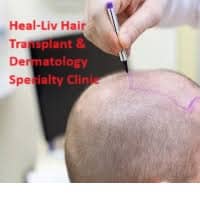Top 10 Treatments Cost in Ethiopia
1. Gall Bladder Removal Cost in Ethiopia – $7,425
Cholecystectomy surgery, often known as gallbladder removal surgery, is a highly common procedure. In the top right corner of your abdomen, there is a small, pouch-like organ called the gallbladder. Bile, a substance the liver produces and which aids in the digestion of fatty foods, is stored there. If you experience any issues with your gallbladder, surgery to remove it is frequently advised because you don’t need one.
If you suffer from painful gallstones, surgery to remove the gallbladder is typically performed. These tiny stones can develop in the gallbladder due to an imbalance in the constituents of bile. Gallstones frequently go undetected and without symptoms, but on occasion they can obstruct bile flow and irritate the pancreas or gallbladder. In the vast majority of situations, gallbladder removal surgery is the most beneficial method of treatment. The cost of gall bladder removal in Ethiopia is $7,425.
2. Colonoscopy Cost in Ethiopia – $3,713
A colonoscopy is a method used to see into the large intestine, which contains the colon, rectum, and anus. It is a form of endoscopy, which means that an endoscope—a flexible tube with a lighted camera attached at one end—is used. For various bodily parts, there are many types of endoscopes. During a colonoscopy, the colonoscope enters your colon through your rectum and anus. It transfers images of your large intestines inside to a screen along the way. It is useful for identifying digestive disorders such inflammatory bowel disease and colon cancer. It can also aid in the treatment and prevention of colon cancer. For elderly adults and middle-aged adults, healthcare professionals advise routine colonoscopies as a cancer screening tool. In Ethiopia, the cost of Colonoscopy is $3,713.
3. GERD Acid Reflux Surgery Cost in Ethiopia – $6,683
Surgery called Nissen fundoplication is used to treat gastroesophageal reflux disease (GERD). To stop acid reflux, the esophageal-gastric junction is tightened during surgery. The tube connecting your mouth and stomach is known as the esophagus. It is a component of your gastrointestinal (GI) system. A condition of the digestive system that affects the esophagus is GERD (chronic acid reflux).
If you have GERD, your esophagus and stomach acid frequently flow back up. During the surgery, a surgeon makes a sphincter (a muscle that tightens) at the base of the esophagus to stop acid reflux. After the procedure, the majority of people have a marked reduction in acid reflux symptoms. The treatment cost for GERD acid reflux surgery in Ethiopia is $6,683.
4. Gastroscopy Cost in Ethiopia – $2,822
The presence of diseases like gastritis or peptic ulcers can be confirmed with the help of a gastroscopy, which is an examination of the stomach. During this procedure, a gastroscope is used to look inside the food pipe, the stomach, and a portion of the duodenum (the first part of the intestine). Symptoms like indigestion, nausea, or trouble swallowing are frequently investigated using a gastroscopy. Sometimes a gastroscopy is necessary to treat diseases like bleeding ulcers, widen a narrow oesophagus, or remove a foreign body. The treatment cost for Gastroscopy in Ethiopia is $2,822.
5. Laparoscopic Anti Reflux Surgery Cost in Ethiopia – $6,683
GERD, commonly known as acid reflux, is treated by anti-reflux surgery. You likely experience occasional GERD or heartburn. However, if you experience it frequently or if other medications are unsuccessful in treating your GERD, your doctor may advise surgery. The procedure is referred to as “minimally invasive anti-reflux surgery.” Typically, undergoing laparoscopic surgery means: Less discomfort post surgery, shorter hospital stays post surgery, quicker return to work and other regular activities, and fewer scars. A laparoscopic anti reflux surgery in Ethiopia would cost you $6,683.
6. Polypectomy Cost in Ethiopia – $5,198
A polypectomy is a medical treatment to remove a polyp, a growth inside one of your organs or body cavities. Cancerous or benign polyps both exist. As a precautionary step, many medical professionals advise eliminating all polyps. Even polyps that don’t initially appear to be malignant, precancerous, or to be causing symptoms may continue to grow and change over time and cause issues. Polypectomy in Ethiopia costs $5,198.
7. Total Pancreatectomy Cost in Ethiopia – $8,910
When alternative treatment options are ineffective, a total pancreatectomy is a surgical operation used to treat chronic pancreatitis. The entire pancreas, the gallbladder, the common bile duct, pieces of the small intestine and stomach, and most often the spleen are all removed during this treatment. The treatment cost for total pancreatectomy in Ethiopia will be $8,910.
8. Irritable Bowel Syndrome Treatment Cost in Ethiopia – $3,713
Uncomfortable or painful abdominal symptoms may be a sign of irritable bowel syndrome, or IBS. The purpose of IBS treatment is to alleviate your symptoms. Your specific treatment plan will be determined by the kind and severity of your symptoms. Fortunately, there are nutritional, pharmaceutical, and behavioral treatments that can be helpful and can be customized for you. The treatment for irritable bowel syndrome would cost $3,713.
9. Gastrointestinal Bleeding Treatment Cost in Ethiopia – $2,673
GI bleeding is a sign of various digestive system conditions, such as reflux, ulcers, and cancer. It can happen anywhere along the gastrointestinal tract, which stretches from the mouth to the anus. Blood loss can occur gradually over time or suddenly and pose a life-threatening risk. Emergency surgery may be needed for extreme bleeding. Laparoscopy is a possible form of treatment. A tiny camera and surgical tools are passed through the tiny incisions made by the surgeon. Using this method, they can swiftly locate the bleeding’s source and provide treatment. The cost of gastrointestinal bleeding treatment in Ethiopia is $2,673.
10. Capsule Endoscopy Cost in Ethiopia – $4,455
A small wireless camera is used during a procedure called a capsule endoscopy to take images of your digestive system. You ingest a vitamin-sized capsule that contains an endoscopic camera. The camera in the capsule records millions of images as it passes through your digestive system and sends them to a recorder you wear on a belt around your waist.
In contrast to more conventional endoscopy techniques, capsule endoscopy allows medical professionals to see inside your small intestine. The information from the recorder is uploaded by your doctor using a technology that turns still images into videos. These representations aid in diagnosing and identifying issues in the digestive system. The cost for capsule endoscopy in Ethiopia is $4,455.















